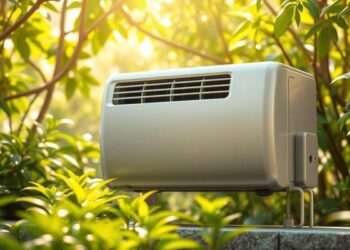How Often Should You Schedule a Professional AC Tune-Up? sets the stage for this enthralling narrative, offering readers a glimpse into a story that is rich in detail with casual formal language style and brimming with originality from the outset.
Regular AC tune-ups are crucial for maintaining system efficiency and preventing potential issues that could arise. By understanding how often professionals recommend scheduling these tune-ups, homeowners can ensure their AC units operate optimally and last longer.
Importance of AC Tune-Ups

Regular AC tune-ups play a crucial role in maintaining the efficiency and longevity of your air conditioning system. By scheduling routine maintenance, you can prevent potential issues, ensure optimal performance, and extend the lifespan of your AC unit.
Prevention of Potential Issues
- Regular tune-ups can help identify and address minor problems before they escalate into major issues, saving you from costly repairs down the line.
- Issues such as clogged filters, refrigerant leaks, faulty electrical connections, or worn-out components can be detected and resolved during a tune-up.
- Proactive maintenance can also prevent breakdowns during peak usage times, ensuring your comfort throughout the year.
Enhanced System Efficiency
- Properly maintained AC units operate more efficiently, leading to lower energy bills and reduced energy consumption.
- Regular tune-ups involve cleaning and tuning components, such as coils and fans, which can improve airflow and overall performance of the system.
- An efficiently running AC unit can cool your home faster and maintain a consistent temperature, enhancing your comfort indoors.
Extended Lifespan of AC Unit
- By keeping your air conditioner well-maintained with regular tune-ups, you can prolong its lifespan and delay the need for a costly replacement.
- Proper lubrication, cleaning, and inspection of components can prevent premature wear and tear, increasing the longevity of your AC unit.
- An AC unit that receives regular maintenance is less likely to experience sudden breakdowns or failures, ensuring continuous operation over the years.
Frequency of AC Tune-Ups
When it comes to scheduling professional AC tune-ups, experts generally recommend having your air conditioner serviced at least once a year.
However, opinions on the ideal frequency of AC tune-ups may vary depending on factors such as the age of the system, usage patterns, and overall maintenance history.
Factors Influencing Frequency
- Age of the System: Older air conditioning units may require more frequent tune-ups to ensure optimal performance and prevent breakdowns.
- Usage Patterns: If your AC is used frequently or runs for extended periods, it may benefit from more frequent tune-ups to maintain efficiency.
- Maintenance History: Regular maintenance and tune-ups can prolong the lifespan of your AC system, potentially reducing the need for frequent service calls.
- Climate: In regions with extreme temperatures or high humidity levels, AC systems may work harder and require more frequent tune-ups to keep up with demand.
Benefits of Regular Maintenance
Regular AC tune-ups offer a range of benefits that can help improve the overall efficiency and performance of your air conditioning system.
Advantages of Scheduling Regular AC Tune-Ups
- Extended Lifespan: Regular maintenance can help prolong the lifespan of your AC unit by addressing minor issues before they escalate into major problems.
- Improved Efficiency: By keeping your system well-maintained, you can ensure that it operates at peak efficiency, reducing energy consumption and ultimately lowering your utility bills.
- Enhanced Comfort: A properly maintained AC system can provide more consistent cooling, leading to a more comfortable indoor environment for you and your family.
How Regular Maintenance Improves Indoor Air Quality
- Cleaner Air: Routine tune-ups involve cleaning or replacing filters, which helps remove dust, pollen, and other allergens from the air, improving indoor air quality.
- Preventing Mold Growth: Regular maintenance can identify and address issues that could lead to mold growth within the AC system, ensuring that the air circulating in your home is clean and healthy.
How Tune-Ups Can Lower Energy Bills
- Optimized Performance: By ensuring that your AC system is running efficiently, regular tune-ups can help reduce energy waste and lower your monthly energy bills.
- Preventing Costly Repairs: Addressing minor issues during maintenance visits can prevent major breakdowns that would require expensive repairs, saving you money in the long run.
DIY Maintenance Between Tune-Ups
To keep your AC unit running smoothly between professional tune-ups, there are several maintenance tasks you can perform on your own. By taking proactive steps, you can ensure that your system operates efficiently and prolong its lifespan.
Changing Filters Regularly
Regularly changing the air filters in your AC unit is crucial for maintaining optimal performance. Clogged or dirty filters can restrict airflow, making your system work harder and consuming more energy. Aim to replace filters every 1-3 months, depending on your usage and the type of filter.
Cleaning Vents and Ducts
Cleaning the vents and ducts of your AC system is another essential maintenance task. Dust, dirt, and debris can accumulate in these areas, hindering airflow and reducing efficiency. Use a vacuum or a damp cloth to clean the vents and ducts periodically to ensure proper air circulation.
Checking Thermostat Settings
Regularly check and adjust your thermostat settings to ensure your AC system is running at the desired temperature. Programmable thermostats allow you to set specific schedules for cooling, optimizing energy usage and comfort. Make sure the thermostat is working correctly and replace the batteries if needed.
Inspecting Outdoor Unit
The outdoor unit of your AC system can accumulate dirt, leaves, and other debris that can obstruct airflow. Periodically check the outdoor unit and remove any obstructions to allow for proper ventilation. Trim back vegetation around the unit to ensure adequate airflow and prevent overheating.
Sealing Leaks and Insulating Ducts
Inspect the ductwork for any leaks or gaps that can cause cool air to escape, reducing the efficiency of your AC system. Seal any leaks with duct tape or mastic sealant to improve airflow and maximize cooling. Additionally, consider insulating ducts in attics or crawl spaces to prevent energy loss.
Closure
In conclusion, knowing how often to schedule a professional AC tune-up can make a significant difference in the performance and lifespan of your AC unit. By prioritizing regular maintenance and understanding the benefits it offers, you can enjoy a more efficient cooling system and potentially lower energy bills.
FAQ Corner
How often should I schedule a professional AC tune-up?
Experts typically recommend scheduling a professional AC tune-up once a year to ensure optimal performance. However, if your AC unit is older or experiences frequent use, you may benefit from bi-annual tune-ups.
What are the benefits of regular AC tune-ups?
Regular tune-ups can help improve system efficiency, prevent breakdowns, extend the lifespan of your AC unit, improve indoor air quality, and potentially lower energy bills.
What DIY maintenance tasks can I do between professional tune-ups?
Homeowners can regularly clean or replace filters, clear debris around the outdoor unit, check for leaks, and ensure vents are unobstructed to maintain their AC units between professional tune-ups.




![How To Avoid Contractor Scams [Infographic]](https://airconditioner.infotangerang.id/wp-content/uploads/2025/10/how-to-avoid-contractor-scams-feat-120x86.png)








